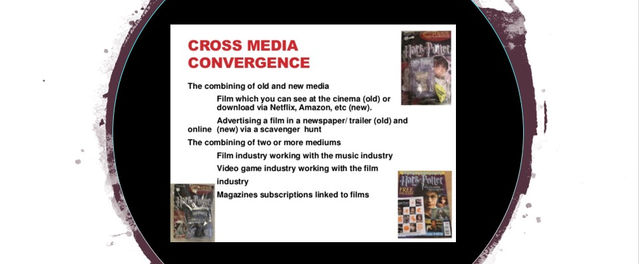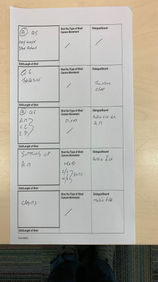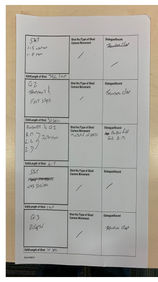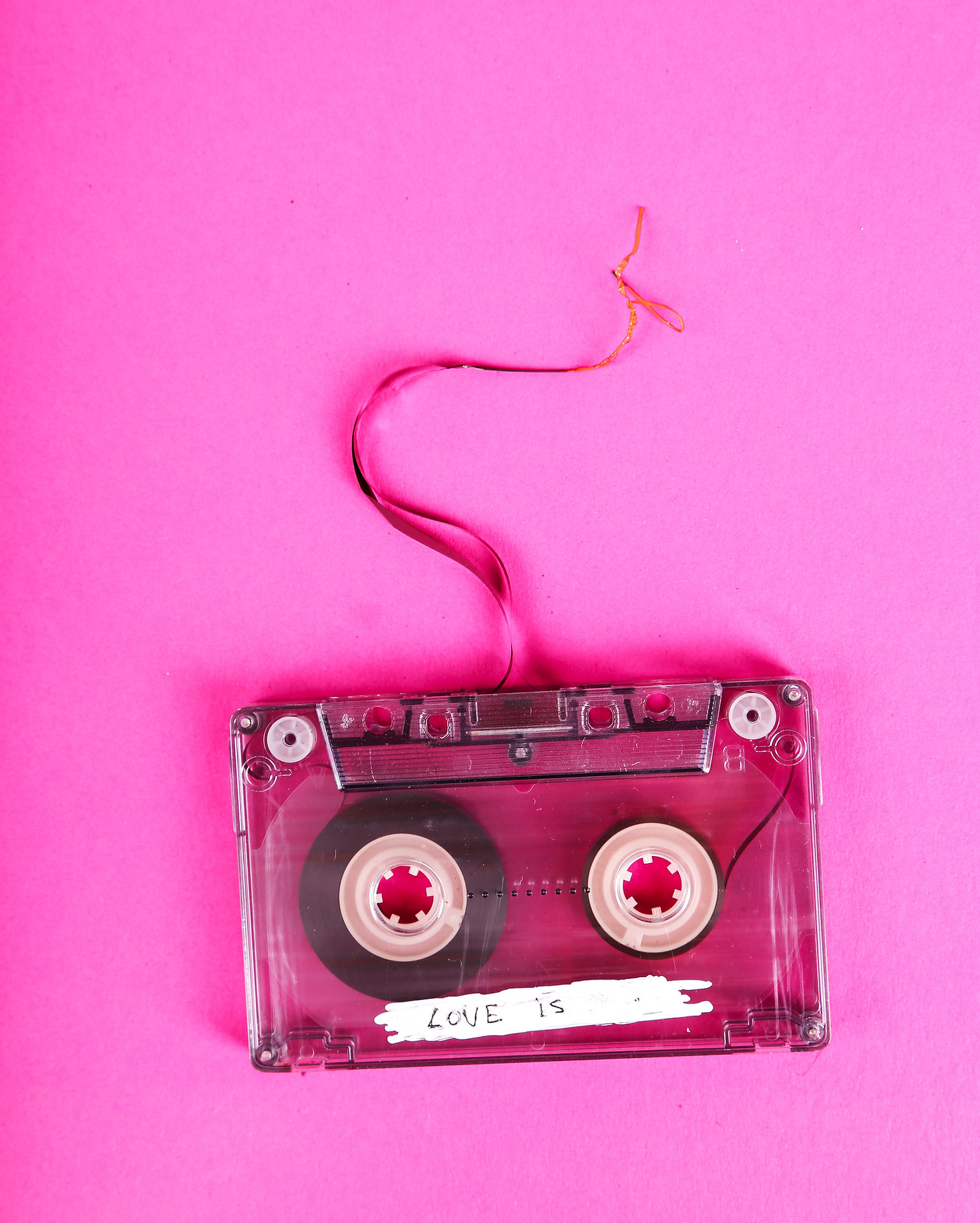
UNIT 1
MEDIA CONVERGANCE
To understand media convergence, you have to first understand the meaning of convergence “the combining of different forms of electronic technology, such as data processing and word processing converging into information processing” (Collinsdictionary.com. (2019). Convergence definition and meaning | Collins English Dictionary. [online] Available at: https://www.collinsdictionary.com/dictionary/english/convergence [Accessed 15 Apr. 2019].
In a media convergence context, it brings together the “three C’s” computing, communication, and content and is a direct consequence of the digitisation of media content and the popularization of the Internet (Encyclopaedia Britannica. (2019). Media convergence. [online] Available at: https://www.britannica.com/topic/media-convergence [Accessed 15 Apr. 2019]).
Media convergence
With media convergence it is entwined with technology convergence as without tech break throughs such as magnetic tape, the invention of the light bulb and the digital age with the birth of the internet which without, none of the modern media mediums such as YouTube channels, Facebook and of course google would not exist . In a technological sense, media convergence is all about integration. In 2007 Ofcom defined convergence as the ability of consumers to obtain more services on a single platform or device or obtain any given service on multiple platforms or devices. Convergence is driven by many different factors, including technological advances, and by consumers always-on digital technologies such as smartphones and broadband. Nestor Garcia Canclini argues that:
The fusion of multimedia and concentrated media ownership in cultural production correlates with changes in cultural consumption. Therefore macro sociological approaches, which seek to understand the integration of radio, television, music, news, books, and the internet in the fusion of multimedia and business, also need an anthropological gaze, a more qualitative perspective, to comprehend how modes of access, cultural goods, and forms of communication are being reorganised .
The earliest recorded media convergence would be the move from newspaper to news reels in the cinema which engaged people through audio and visual were with a newspaper you would only have the visual. This didn’t not impact the newspaper industry too much as in the early days there would only be a news reel once a week and was more of a luxury to go and see.
-
EFFECTS, PRODUCERS AND AUDIENCES
The effects of convergence in the uk film industry is felt by the produces in many ways such as it is easier to reach audiences, but it has created more work having to make cross platform content, harder fight against piracy and has created bigger competition as technology is now assessable for everyone. On an audience side it has given them more of a freedom of choice through content that is relevant to their devices, through VOD and file sharing. But this has had a social impact with public less engaged with each other and pushing producers, filmmakers and studios to release content earlier and earlier, which in turn has led to the down turn in cinemas and a direct impact on independent filmmakers and cinemas with closures and less places to show case work.
-
CROSS MEDIA CONVERGENCE ‘Hardware and software coming together across media, and companies coming together across similar boundaries. This makes the distinction between different types of media and different media industries increasingly dubious.’ Julian McDougall – Media Studies: The Basics The combining of old and new media Film which you can see at the cinema (old) or download via Netflix, Amazon, etc (new). Advertising a film in a newspaper/ trailer (old) and online (new) via a scavenger hunt the combining of two or more mediums Film industry working with the music industry Video game industry working with the film industry Magazines subscriptions linked to films
-
MEDIA SYNERGY Media synergy is the way in which different elements of a media conglomerate work together to promote linked products across different media. Sometimes this involves looking outside the conglomerate eg West End version of High School Musical Example: Disney ‘High School Musical’ Different to cross media convergence because media convergence is based on combining at least 2 different parts of the media industry whereas synergy can be 2 agents from ANY industry. Often works best which is uses very different industries. Overall the effect created is larger that if they act independently
-
Production – need to produce music with current musical talent (eg Adele and Skyfall, Ed Sheeran and I See Fire)
-
Distribution company + Online organisation + Retail organisation = larger effect on release method
As the current convergence inevitably winds down, will it become easier to comprehend that digital wonders come at the expense of employees and ecosystems?
Economies based on accelerating innovation, rising energy consumption and growth ideology are already facing strategic problems, climate change and fiscal crises arising from the monumental cost of repairing the environment. To see through the fog of cybertarianism, we need to establish some ‘autonomy from the industry and fan logics’ (Beaty 2009, p. 24). The myths that swirl around digital media convergence managerial efficiency, global interactivity and interpersonal connectedness, must be countered with histories of the environmental plunder and toxic sweatshops that have made old and new media possible.

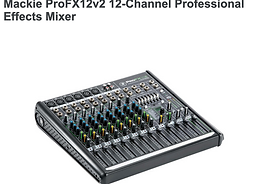





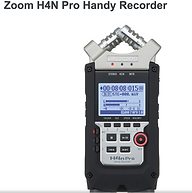
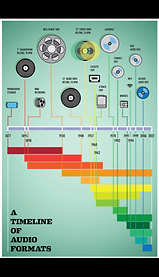
The images show both media and technology covergence and different stages, for example the convergence of all the Channel 3 TV stations merging to what we all know as ITV.
But the images of the sound equipment and history of light table also show the move from analog to digital

https://www.desktop-documentaries.com/making-documentaries.html
Key Steps to Making Documentaries:
Tell a story you care about
Start with a subject that excites you. If you’re lukewarm about the subject matter, chances are, the final movie will be too. Make a documentary you're passionate about and makes sense to YOU. There will be plenty of people who don’t “get” your idea. But if YOU get it, that’s what counts.
Research
Learn everything you can about your documentary subject. Sometimes the story lines are obvious, sometimes not. Do a lot of digging and follow leads. This is where you put on your reporter hat. Gather facts and search for leads on interesting characters and story lines. The gems of your story are sometimes buried deep out of sight.
Make a Plan
Create an outline. Think about HOW you’re going to tell your story. What’s the structure? The style? Is there existing footage or photos that help tell your story or will everything need to be shot brand new? Who is your primary character(s)? What are you core story points? What are the elements of your story that are compelling and/or make you “tingle” with intrigue? How can you create that intrigue for your audience? Is there some existing situation you can film or do you need to create the moment?
For Detailed Planning:
Documentary Budget Template
Documentary Proposal Template
Find Money For Your Documentary
Interviews
You may be tempted to put a lot of people on your interview wish list. Again, there are no rules because each documentary has its own set of circumstances (maybe there’s a reason to interview 100 people), but in general, it’s hard for an audience to get to know more than 7-8 “characters” within one movie. So even if you interview 100 people, don’t be surprised if you are only able to fit a fraction of them into your movie. Of course, there’s always the Bonus Features section on your DVD. ;)
Start Shooting
Are you making documentaries for the web, mobile devices, television, theater? Maybe a combination? Keep in mind HOW your movie will be viewed because that can dictate your shooting and storytelling style. Make sure when you're shooting an event to capture a variety of angles including close-ups, medium shots and wide shots.
Write a Script
Once all of the footage is shot and you’ve gathered the various production elements, time to start organizing it into a script. Pinpoint the most compelling elements of your story and start crafting "mini-scenes" around those events. Remember, a script isn't necessarily what's spoken or a voice-over. A script describes what the audience is seeing AND hearing.
Distribute
Of course, now that you’ve done all the work making your documentary, you want people to see it, right? Never before have there been so many options for filmmakers to showcase their work. From theaters to television to DVD to the web, a new world of distribution is being invented right in front of our eyes. Making documentaries and showcasing your work is easier than ever.
RESEARCH
SURVEY
VOX POPS


The majority of my primary research will be looking a how other people have shot documentaries but also look into mental health documentaries. But also look at how other directors have used screen recording the sound and how they break up the videos and answer the relivant questions
Research findings from Vox pops and survey
Looking at my survey it is plain to see that the age demographics show a 30+ this is due to only myself mailing and posting on social media, due to this fact most of my contacts are over 30. If I was to produce my documentary for professional release I would either pay for full membership on survey monkey and have them send it to people on their mailing lists which can be in excess of 100+ contacts or the other way would be to get a marketing company involved and use their contact list and mailing lists this would also do a dual purpose as I would use the company to also create a hype about the documentary as well as a website, social media pages etc, this way it would not be a waste of the budget.
My reasoning for creating my Vox pops aimed at a younger generation is to gather more input from 16-30-year olds, as this will give me a broader range of how people access film whether it be online, cinema or VOD (video on demand).
It is very interesting to see the answers relating to “does mental health interest you” question as it seems that the 16-30 generation are not really bothered about this were 31+ are very interested maybe this could do with mind-set, were the younger generation might not have been in contact with anyone with mental health were the 31+ bracket 100% of people have been in direct contact with mental illness either through family or friends.
The other information that I have gathered out of both the survey and Vox pops is that most of the public either watch YouTube or VOD such as Netflix of download content, this helps me with a marketing and distribution plan and shows that the general public like to watch things at their leisure rather than a given time on a TV channel.
It is also very interesting that the younger generation prefer fiction than fact were the older generation is the opposite this info could mean very different things but when asked the younger generation are full of hopes and dreams were the older generation works more towards a real life feel, this is due to news being instant through the general public uploading video clips of real life crime etc.
So using the information that I have gained I have realised that my film project would be better directed at a 30+ audience but with the option of other generations being able to come and watch as well.
My focus group will be held at a later date and I will use some snippets from the documentary to gage if I am on the right track by producing a trailer.




My short film is going to be a documentary based but unlike most documentaries and budget constraints I will be focusing on more life story than facts and figures, with the use of interviews as well as myself introducing and being a part of the film as well.
The reasoning for choosing mental health is because it is the biggest health issue on the rise.
Just looking at the charts it is still more likely for a man to commit suicide than a woman. The only good side is suicides are down from the 80’s. But there is also a short fall in monies to support mental illnesses considering anti-depressants in 2006 were taken by 31m people and in 2016 the rise was 108.5% to 65m people, so why is it the NHS total budget spend in this area is only 11% but also mental health remains the poor cousin compared to the spending on physical ailments.
It has been documented that most mental health problems tend to start at an early age in fact, most mental health problems develop in childhood or when a person is a young adult. Three-quarters of problems are established by the age of 24.
At any one time, a sixth of the population in England aged 16 to 64 have a mental health problem, according to statistics body NHS Digital
It is more likely that more women than men will be affected by common mental illnesses with 1 in 5 compared to men 1 in 8 these details are correct up to and including 2016. The history of mental health is a very dark one, with people being born with mental illness or learning disabilities, used as experiments to see how they could be ‘fixed’ with the use of ECT and lobotomy, but also the church and religious groups treated it a possession with some extreme circumstances ending in torture or death. From early times most people were placed in building’s which in the 1910’s was called Asylums. Asylums did not survive criticism in the 1970s from ex-patients, feminists and the antipsychiatry movement. Psychiatry’s focus has since moved from asylums to pharmaceuticals.
Many people today view mental health as a biomedical issue. They choose to consult medical experts such as psychiatrists. Others see mental health problems as personal or interpersonal matters that should be ‘talked through’ in regular psychotherapy sessions. This may take the form of psychoanalysis, cognitive-behavioural therapy, group therapy or other methods. Some seek explanations beyond medicine. These include spirit possession, sin and social injustice. As a result, people may seek help through prayer, confession, spiritual guidance, exorcism, political activism, social change and creative expression. We mix and match approaches to make sense of what has happened to ourselves or a loved one. History shows people have always done this.
Location
With making my documentary most of my location will be done via video call on my laptop using quick time and recording the screen selection.
For my part in the documentary I will be using the collages tv studio and setting up camera’s and audio for recording myself (illustrated pictures will be applied). Within this I will use a risk assessment and fire assessment as I will be using electrical components such as lights and filters for filming, but I will also try to acquire the collages risk and fire assessments to conform with all health and safety aspects of location filming
To the left is test footage of screen recording using quick time
Title IT CAN’T RAIN ALL THE TIME
Treatment, 17/04/2019
Author Name Anthony Moyle
Logline
Documentary focusing on real life account of mental illness and the way of living with mental illness and treatment through medical of alternative medicines
Characters
There will be no characters in my film as it will be real life account and experiences
Concept
This subject is very close to my heart as I still suffer personally with mental illness and understand the difficulties for myself with mental health issues, I also lost a long-time friend to the disease.
I aim to focus on different people’s experiences with mental health but also interview people from the NHS to see what the resources are available and how stretched their services are.
I will also be looking into other types of alternate medicines are out there and how they can help.
Synopsis
A documentary to show the daily struggles of people with mental illness, but also focusing on the services on offer and the pressure the NHS is under.
But also to show that apart from normal medication there are other ways to cope with mental illness but also to have good mental wellbeing
FLOOR PLAN





Budget
If I had the budget for my documentary i would travel to the people I am interviewing and film with a proper camera as well as a audio recorder either in their own home of do research and find an appropriate place to film. Also I would use a marketing company to complete research and surveys for the documentary as well as use their services to market and distribute the finished product as they specialise in this field and marketing is a massive work load and job just on its own.

STORY BOARD & SHOT LIST
Script with generic question for interviews
The reason for this documentary is this is a subject close to my heart and also because I am a sufferer of mental health illness for the last 10 years, being feed different types of tablets when one stops working. But also last year I lost a very old friend to mental illness through alcohol which is a legal controlled drug.
This documentary is about mental illness and alternative methods and medicines.
It will introduce you to people who suffer with mental illness, work for the NHS and introduce you to people who can offer different ways to have good mental health.
Unlike most documentaries I will not be give you out figures as I believe as a sufferer of mental health these figures are inconclusive and only show the number of people in the mental health system, not the people who suffer in silence or are discharged like myself.
Mental health can strike anyone at any point it is not discrimanating and doesn’t care whose lives are wrecked which is why there is a growing concern over the medical community that mental illness is the biggest and most uncontrollable disease that is taken the human race by storm, as I said this is an epidemic that has been treated through out history from rest bite homes to mass mental health institutes were tests were performed and even up until recently EST was still being used
The beginning
when I was diagnosed with my mental illness, I was close to killing myself but also due to mass pressure from work more hours less work life balance I was drinking between £100-£150 a night or 24 cans and a litre bottle of vodka.
I was taken to my doctor for an emergency assessment which I completely broke down and felt I was at a bottomless pit or a tunnel with the light so distant I didn’t know how to come back from.
Treatment and first steps
I was taken to a mental health clinic where I was assessed by a psychiatrist and give a wellness plan and had to attend a psychiatrist 3 times a week
Wrap group
Tablets
Rehabilitation
Relapse
I have relapsed in my mentall illness by rushing to fast to get back to normal and doing stuff I was not mentally ready to do
Rehabilitation and rebuilding
It has taken me 10 years to get on to a “normal” level and realise that I would never go back to what I have known for years, but now I am at collage and following a different path where I can work for myself and not put too much pressure on myself and relapse again.
My Family have supported me through a lot I have been up and down like a yoyo in and out of clincs but im one of the lucky ones who is able to rebuld and reshape my life there are people out there that cant even get out of bed.
Health and alternative ways to good mental wellbeing
NHS services and appointments
Once my mental health improved my appoinments got longer and longer till I got discharged as for my experences the NHS is stretched and only has a small budget towards mental health (see other research paper)
The future
For me the future is a little clearer but I am still learning to deal with emotions and discovering who I am all over again. The only thing I can say it is like, its like being a teenager again but without the crazy hourmones. At the moment my life is good I have a son who loves me no matter what, also learning new skills and remembering old ones through film, photography and music. I work with a good friend in A/V and have meet people that are helping me progress my skills.
I cant say what the future holds but what I can say is that there is many different ways to help keep good mental health through diet, meditation and other alternitives
Final words
No matter who you are or what status you have mental illness can strike anyone at any point so if your feeling a little low don’t stay quite go talk to someone no matter how small the issue maybe and try to look after your mental health and it will look after you also remember a good work life balance in this crazy world is short but make the most of the time you get and as an old TV show used say ‘good mental health’ Fraser Craine


Screenshot 2019-04-21 at 15.51.24
Above is focus group footage and rough cut
Below is focus group feedback
Focus Group Feedback
I showed part of my rough cut to a focus group of 5 people three males two female.
The reason for this focus group was to get some audience feedback on my short film, the way I did this was to get the group to answer five question, the results are as follows:
Q1: Could you relate to the content within the film?
Results:
4 out of the 5 participants felt that the subject was very relevant, and the information was great.
The other person didn’t feel a connection to the subject in my film this was due to the fact there had been no direct contact with mental illness.
Q2: Is there enough time to read the information on screen?
Results:
All participants agreed needed more time to read information on the screen.
Q3: Can you hear the interviewees?
Results:
All participants agreed the only persons interview that they could hear or understand was Louise Custard.
Q4: Is the music relevant to the film?
Results:
Everyone agreed that the poetry was very fitting and gave and emotional attachment to the images seen on the screen.
Q5: Is there too much of just watching someone speak on the screen?
Results:
All participants thought that the amount of time seeing someone on the screen was a good balance but found it hard to identify with 4 people over a short period and maybe just stick too one subject and make the information on screen longer

ROUGHCUT

DIRECTORS CUT
 original edit log |
|---|
 IMG_8416original edit log |
original edit log
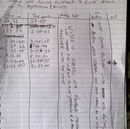
final edit log

Fine cut
Fine Cut Screening and feedback
After showcasing my film to my peers I received some great feedback, but what was said is maybe at some more of my own footage in for the B roll.
So I took this on board and created some of my own footage for the B-Roll which I am very happy about the way it has come out.
Marketing and distribution notes
-
Film festivals such as ‘La Film Festival’ where thirty-nine films had their world premieres at the 2015 Festival and 59% of the films that screened were from first-time directors.
-
Commonplace are split rights deals, where distributors cherry pick territories and then decide which national rights they want.
-
Service deals a service deal; the filmmaker hires a specialist who takes over the distribution process for a fee. Preview screenings are set up for cinema booking agents and then specialists are booked. Advertising and publicity campaigns are designed and launched, and the money is returned to the filmmaker less the money spent. Service deals can offer a greater amount of flexibility and control to the filmmaker
-
Cap Film Distribution Expenses any marketing campaign is expensive. If your deal calls for a split of profits after expenses, make very sure you have capped the expenses, or any profit will simply melt away.
-
The more you network with fellow filmmakers, the more you will learn about the industry
-
Marketing process begins as soon as the film is acquired. First decide on a release date, and then work backward from that date, creating assets (the poster, the trailer) and determining how they can be best used to promote the film.
-
Gravitas Ventures was founded in 2006 as a VOD distributor, but they’ve since branched out into theatrical releasing. The 400-plus films they distribute each year play in over 100 million homes across various platforms.
-
Research publications and Facebook groups in your target audience. Both can help spread the word about your film. If it’s geared towards a younger audience, focus more on social media; if it’s an older audience, you may want to consider some print media.
-
Know your audience. Are you trying to hit a specific community don’t make the mistake of trying to market your film to “everyone?”
-
Have great production stills. Photography is so important, no one can market, promote, or publicise your film without it. Minimum size is 300 dpi. Great photos can get you great coverage.
-
Make sure you have a synopsis. Your synopsis should be clear, it should be simple enough to be understood by someone not even remotely familiar with filmmaking.
-
Research similar films that have already been released. It might provide an insight on other target audiences.
-
Keep some making-of, or exclusive footage, for online promotion. Some clips or a short montage.
-
Find a great spokesperson who can do press on behalf of the film.
-
Try to see the film for what it really is. Assess its strengths and weaknesses, then develop a line of communication that builds on what the film has to offer.
Performance Review
Performance Review
-
When I started this project my aim was to show people that awareness is great but without action the mental health crisis will only get worse, but also to show the audience people who are dealing with these issues on a day to day basis not from a past tense like some of the documentaries shown on the BBC through mental health week. Which shows people that have recovered to a certain degree and can cope with everyday life, where I was going for the complete opposite to this.
-
To start with I was going on my initial ideas from my story board but after my primary research showed from using survey monkey I had I direction to follow, but my results in one way were inconclusive as most of the people who responded were 25+ so I used my secondary research to aim at the younger age groups and used the collage as a base to gather this information which showed that most normal 18-24 had no engagement with anyone with mental health so this gave me my age range to aim my project at which would be the 25+ age group. I also held a focus group to gage how the audience felt and what needed to be improved to keep the audience immersed in the project through both the footage and the audio using poetry to tell the story but also to add emotion and feeling to the experience.
-
What things do you think worked well and why? Evaluate all aspects of the project (e.g. initial inception, project activities and project outcomes) from a range of perspectives.
-
I feel the preproduction and the production part of this project went very well for me. The reasons I feel these areas were the best is because I had a plan in mind created a time line and stuck to the story boarding, but also due to the research I conducted I knew the direction to take the film but also the age range to market too. On the opposite side to this the majority of the post production went well apart from the audio on three interviews. I wasted far too long in trying to correct the problem using adobe audition, when I should have done some more research and added subtitles to the clips (this I know now after further research). But I do feel the end project has come together well with the impact and message I was trying to get across.
-
There were a few problems along the way one
-
Recording equipment wasn’t ready for when I needed it, but this was an easy problem to solve I just rescheduled it in for a different
-
Poor Audio here I had I big problem as the audio from three of my interviews were really bad, so I tried to rebook to rerecord the audio but unfortunately, they were not available till after my deadline. But lucky enough my research from my focus group helped me make a decision on only having one person interviewed in short time for the audience to relate too. So, I rebuilt my film but keeping with the same format just interviewing one person instead of four. Also with further research I have now discovered how to add subtitling too films so if I was to remake a longer piece and use four people I can now add subtitles so the audience would understand what was being said or with a proper budget I would travel to the different places for the interviews and record both the footage but also use a zoom recorder to record the sound.
-
Editing assignment. While I was completing this project, we were given the theory aspect to complete on editing so I took time out from the post production to complete this, as for myself the theory side can take a lot long than the practical side. This put my time line back by 3 weeks as I was hoping to have the final cut and all production finished in 4 weeks. I have documented this in my production log along with a day to day account of my progress.
-
I learnt a lot about myself through this project both emotionally and physically but the main thing I realised in the project is you cannot produce a project just on your own as you can become narrow sighted of the true goal. But also, the pressure of the project would be distributed around the different departments instead of just one person’s view and outlook.
-
As a project manager I would rate my performance as fair due to the fact that I became narrow sighted and fixated on repairing bad audio when the right thing to do would have been to scrap it or redo the interview.
-
STRENGTHS
-
Good organisation stick to time scales and deal better with the practical.
-
WEAKNESSES
-
Fixating on things that should be scrapped and put to much pressure on myself to complete tasks early
-
It is always a good thing to self-evaluate yourself but also to get evaluation back from peers, as this can aid in personal development by helping identify areas of improvement. By identifying these weaknesses, you can either work on those areas or work with someone who can complement you for example your good points are their bad points and vice versa. These are great areas to work on with collaborations with other film makers, directors or producers. But in my opinion, it helps you to understand yourself better which in turn helps you in work, at home and everyday life situations, if we never receive feedback how do we know what areas to improve and where our strengths lie.
Production Log
.
WEEK 1
MON
Plan production
Create and post general survey using survey monkey
TUES
Script and generic questions for everyone using Courier new 12pt as this is industry standard as 1 page = 1 min filming
WEDS
Analysis of survey
Create Vox pops
THUR
Get Vox pops answered using survey monkey
Book people in for filming
Book out TV studio for my filming
FRI
Find music from Zoe for documentary
Analysis of all research
So far this week I am on track with my production I have learnt to use survey monkey for the first time and without paying for the app you have to have your own mailing list to answer a survey. The good thing about survey monkey is you can review research in different chart forms. I have spoken to relevant people regarding interviews and they will get back to me asap with dates.
WEEK 2
MON
Use data from Vox pops and survey to look at marketing
TUES
Video interview with Louise Custard
WEDS
Hospital
THUR
Hospital
FRI
Review Interview with Louise for sound and picture quality
Due to personal issues I have had to take 2 days for hospital this will put me back a couple of days but will put the time in over the weekend to catch up.
Interviewing over video call with Facebook is very easy to use but I also learnt how to screen record on a mac. After reviewing the footage and sound I have made a start on my edit log
WEEK 3
MON
Story board
TUES
Listen to music tracks sent by Zoe
WEDS
Video interview with May Whyte 2pm
THUR
Tv studio not ready to use
Floor plan
Risk assessments
Shot list
FRI
Review interview with May for picture and sound quality
The story boarding on this project was hard to start with but after following my treatment it was easy to compile and also shows a flow of narrative.
Problems I had this week was the studio was not ready to use so had to rebook for following week on Thursday, also the sound quality on May’s interview is very poor and will have to edit in audition.
Good points are that I have completed a risk assessment for the studio with floor plan and shot list.
WEEK 4
MON
Started unit for editing
TUES
Writing up research and findings regarding editing and editing styles
WEDS
Finish and hand in editing unit via email
THUR
Record my own interview using 2 cameras one for W/A/S and one for C/U/S. use of script also adhered to risk assessment
Cameras setup on tripods using all manual settings to create the best image and look while applying framing rules
FRI
Start production process reviewing all footage
This week I decided to work on the theory aspect to my edit unit as the practical side will be contained in my final project. The editing theory took longer than I thought, but I did get to film my interview in the TV studio at collage still not sure if I will use it as it could look very portentous will decide later on whether to use it
WEEK 5
MON
Review for Louise custard (using prem pro and marking ready for cutting)
TUES
Review and create edit log in order to answer questions within documentary for May Whyte (using prem pro and marking ready for cutting)
WEDS
Use Dave Wilkes for poem for intro to documentary
THUR
Review and create and edit log for Richard Fey interview in order to answer questions within documentary (using prem pro and marking ready for cutting)
FRI
Review and create and edit log for Steve Roger Philips interview in order to answer questions within documentary (using prem pro and marking ready for cutting)
This week has been a very tough week as background noise and poor internet signal in some of the interviews have made it hard to hear what they are saying will continue on working with the audio using audition and logic to see if I can get a better result. I have decided to use poetry instead of music as it feels more emotional and will keep the audience engaged while watching the final outcome.
WEEK 6
MON
Review and create a edit log for my interview in order to answer questions within documentary (using prem pro and marking ready for cutting)
TUES
Start to build intro to documentary using poem sound effects and introductions to interviewees.
Focus group: Got great feedback and now know which direction to focus on
WEDS
Start to create b roll to keep audience interest and immersion into the narrative of the documentary
THUR
Have decided to add a talk over audio clips and adding some facts from NHS digital as audiences react to facts.
Start to write script for talk over
FRI
Finish writing script for audio talk over
Create rough cut
Directors cut
This week I decided to build the intro to my short film as this is a good starting block to create a narrative and make the interviews flow I have also decided to add a B film role as just looking at people talking can be off putting and very boring for the audience. I have also decided to add a voice over to direct the audience. Due to the audio having a lot of background noise in the interviews I have decided to only use Louise custards interview and create a narrative around depression and anxiety using the B roll
WEEK 7
MON
Create fine cut
TUES
WEDS
THUR
Show case fine cut address Q&A and remove shutter stock also add more of my own footage in to film
FRI
Final Cut
Final cut ready
Due to having to produce theory work for the editing unit my deadline is behind by 3 weeks but also I spent far too long on bad audio recordings trying to improve the quality (But I did find a program I can use in the future for subtitling), instead of just scrapping it and moving on due to interviewee’s not being able to rerecord. In the future I would use a budget and go to each person’s location and record with proper video equipment and digital recorder for the audio.
I am very proud of the way my project has come out, but if I was to redo this project with a full budget as mentioned above, I would use all possible avenues to record the audio and footage with the correct equipment to produce a better quality of film
Social media feedback
from fine cut
Distribution and Marketing Q&A
History behind documentaries
Throughout history documentaries have highlighted important issues as well as events these includes the critically acclaimed documentary on 9/11 by Michael Moore.
which goes into great detail but with controversy questions put to members of the USA senate. This film became the highest grossing documentary of all time in the US box office, but audiences of the world were introduced to documentaries back in the 1970's with films from Jerry Bruck (1973) and Jill Godmilow’s (My Antonia 1974).
There have been so many directors who have created a documentaries to name all of them would take a very long time, but there are some famous director's such as Errol Morris as well as Martin Scorsese also documentaries have become a regular feature for national TV in the UK with channels such as the BBC, Channel 4 and occasionally ITV hitting some really hard stories these include:
Aids/HIV, the gay and transgender communities, War (WW2, WW1 most recently Iraq and Afghan), Sex slaves just to name a few.
These days a lot of the documentaries I watch normally contain interviews such as:
Stacey Dooley or Louis Theroux, these documentarian's have hit had subject of recent times such as Jimmy Saville, Brothels, Insanity, Brain washing and the war on drugs just to name a few.
Errol Morris is one of the directors of documentary that is held in the highest regard, but in my own opinion his work is very slow, also from an audience view of the modern day it takes far too long to get to the point and with the way audiences now view media either streaming or on VOD the audience wants you to get the point and not give too much background on the person your interviewing, that is what I found in my research for my project, this is down to a number of issues but most people say they don’t have the time to sit and wait for a story to begin they want a short background of the subject then get to the nitty gritty.
Don't get me wrong he has created some great projects such as: The Thin Blue Line and A Brief History in Time.
Even tho his narrative is very easy to follow in this day of media convergence his work only works well from a cinematic area where in comparison to Louis Theroux work which is aimed at today’s media needs but also Louis asks the most personal and awkward questions by acting as he has done no research and becoming very friendly with the subject over time a great example of this is in the "When Louis meet's" series and interviews Debbie McGee and Paul Daniels.
Throughout history documentaries have been known by many names such as:
-
Actuality film (pre 1900's)
-
Cinema truth (1920's Russian during the revolution probably the birth place of documentary)
-
Original (1922 Robert Flaherty)
-
1926 was the first time the word documentary was mentioned by John Grierson
-
1930's and 40's the Nazi's used documentaries as propaganda media against the allied forces
-
1950's-1970's with the movement in technology it became more easier to capture 'spontaneous' events (Cinema Verité and Direct Cinema)
-
1960'-1990's TV picks up the batten and becomes an important media for journalism and education
-
1990's- Date more and more independent filmmakers are using technology and media channels to release their projects using different types of equipment such as mobile phones to capture 'The Now Moment' giving the public instant access to current events before main stream media outlets. A great example of this are the London riots as well as the aftermath of terrorist attacks, but with no content control it begs the question
Is this a good or bad thing to have? possibly a great angle for a documentary.
There are four distinct purposes of documentary (Michael Renov)
-
to record, reveal, or preserve
-
to persuade or promote
-
to analyse or interrogate
-
to express
But also, there are different forms of documentary such as poetic, expository, participatory, observational, reflexive and performative. these forms can also overlap by using different editing styles to create the narrative, some good examples of early documentary are:
‘Man of Aran’ (Flaherty, 1934)
‘A Day in the life of a Coal Miner’ (Kineto, 1910)
‘Night Mail’ (Grierson, 1937)




